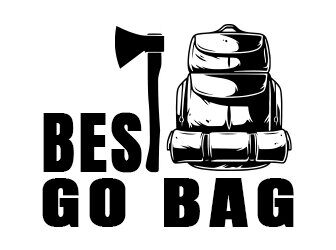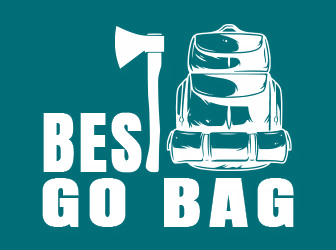Over the weekend in Russia, the unthinkable happened. Russian mercenary leader Yevgeny Prigozhin – head of the paramilitary organization known as the Wagner Group – ordered his fighters to move from occupied eastern Ukraine to the Russian city of Rostov-on-Don. That’s where Russia’s Southern Military District headquarters is located.
He then sent an armored convoy toward Moscow, halting just 120 miles south of the capital before turning back. The course reversal followed a deal brokered by Belarus leader Alexander Lukashenko.
Calling it a “march for justice” rather than a coup, Prigozhin nonetheless raised the ire of Putin. The Russian president accused his former ally of treason, called him “scum,” and declared his actions “a stab in the back of our country.”
The formerly loyal henchman’s status is now unclear. But of greater interest to us and the rest of the world is whether his action and the lack of response from the Russian military has weakened Putin’s hold on his presidency.
Prigozhin’s Rebellion Was Festering
What led Prigozhin to revolt? For months now he has been complaining about the lack of supplies and ammunition his group has received.
These complaints have been directed mainly toward Russian Defense Minister Sergei Shoigu and Armed Forces Chief Valery Gerasimov.
Prigozhin recently refused to sign defense ministry contracts designed to bring all mercenary groups fighting in Ukraine under the defense ministry’s authority.
And he claimed the Russian military had staged an attack on his men in Ukraine. He said his dispute was not with Putin, but rather with the “clowns” in charge of the war effort.
A Challenge to Putin’s Rule
When a dictator has been president of an enemy country for more than 10 years, we start to think of him as untouchable. But then something occurs that makes us wonder.
Vladimir Putin has served as either prime minister or president of Russia since 1999 after working as a KGB foreign intelligence officer for 16 years. For the past 17 months, his reign of terror in Ukraine has been well documented and rightfully condemned by many world leaders.
Nations sympathetic to Ukraine including the United States have supplied weapons and counsel to the besieged nation. But they have not become involved militarily for fear of launching World War III.
Within Russia, Putin’s authority to lead an attack against Ukraine has been unchallenged for the most part. Which made last week’s apparent insurrection newsworthy around the globe.
Is Putin’s Iron Fist Softening?
Putin could have ordered his military to halt Prigozhin’s advance. But would they have responded as forcefully as he wanted them to?
Failing to physically stop the insurrection, and seemingly allowing Prigozhin to avoid punishment, has led some analysts to speculate that Putin’s hold on power could be fragile.
One journalist referred to the situation as “the beginning of the end for (Putin).”
He also speculated that Russian frontline soldiers may become hesitant to risk their lives for a commander who has lost their respect.
Playing Field Could Be Evening
How will this bizarre turn of events affect Ukrainian soldiers? It could embolden them and create even more incentive to fight off the Russians.
John Barranco is the 2021-22 senior U.S. Marine Corps fellow at the Atlantic Council’s Scowcroft Center for Strategy and Security.
He said, “Massive amounts of confusion have been sown in Russia’s rear area. And whatever confidence rank and file Russian soldiers had left in their leadership is gone.”
He added he expects morale and the will to fight will slip due to the Wagner Group’s having been Russia’s most effective unit in Ukraine. He expects the mercenary gang to be disbanded.
Will More Dominoes Fall?
Bill Browder, author of Red Notice: A True Story of High Finance, Murder, and One Man’s Fight for Justice, believes a “purge of monumental proportions” is coming to Russia as a result of Prigozhin’s armed uprising.
Some Russians who moved to Turkey due to the invasion of Ukraine are disappointed Prigozhin’s march came to an end short of the goal.
But they are hopeful it will inspire other armed groups, such as the Freedom of Russia Legion, to challenge Putin’s regime.
And they believe Putin’s rule has been weakened, and that it’s only a matter of time before his leadership suffers another blow.
Nuclear Weapons Back in the Conversation
One question on the minds of the world’s leaders is whether these latest developments will affect Putin’s decision regarding using nuclear weapons in Ukraine.
U.S. President Joe Biden has referred to Putin as a “murderous dictator” and a “pure thug.” Putin has recklessly floated the idea of using nuclear weapons in the past, and this latest embarrassment to his leadership could cause him to become desperate.
Perhaps more frightening than the likelihood of Putin using nuclear weapons in Ukraine is a potential change in the Russian power structure that could place the security of the country’s vast nuclear arsenal at risk.
On their way toward Moscow, Prigozhin’s forces pushed through Russia’s central Voronezh region, known to harbor a nuclear-weapon storage facility. The group made no effort to access the weapons.
Antony Blinken is U.S. Secretary of State. He told CBS News, “When we’re dealing with a major power, and especially a major power that has nuclear weapons, that’s something that’s of concern.” He added the U.S. has not seen any recent change in Russia’s nuclear posture.
Stay tuned.


